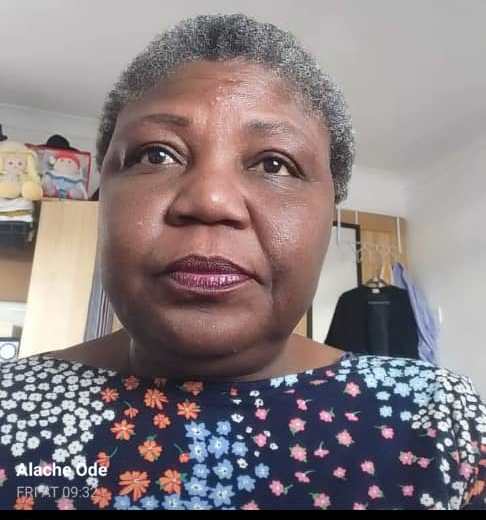By Adagbo Onoja
The Facebook is a torturer. It is so because it is not every user who has no better use of it than splash all details there to affirm a disturbed and an insecure self. It still serves its original owners a surveillance purpose, in geopolitical and capitalist profit sense. Two, it is a space of highly toxic behaviour and content, some of which some of us are implicated even before we know. This happens as in when scrolling down, you touch somewhere and it amounts to endorsement in the form of ‘Like’. It is instantly recorded for you and beamed to the whole world without any hint that you never set out to ‘Like’ the hopeless stuff. So, like every form of medium in human history, the social media platforms are sites of conflict too.
But the social media is also a paradoxical space. It alone can accomplish what some geopolitics scholars call “distant witnessing” that comes from the endless participation in affairs that are otherwise too remote from many of those who eventually became its viewers.

The late Alhaji Abubakar Rimi, 2nd Republic governor of Kano State in Nigeria
Today, I am testifying to distant witnessing in coming across Alache Ode on Facebook a few days back. Why might coming across Alache Ode matter? Could that be because she is Idoma?
Her Idoma identity could be part of it but beyond that, I argue that an Alache Ode is one of those that our young girls should know about and strive to be like instead of falling to the temptations prevalent in the larger society.
We should start by inserting the background that her father was a military officer in those days and she was, therefore, privileged and it would have been a paradox if she wasn’t a pacesetter. But we must also accompany that with the admission that there were/are many children from privileged backgrounds who have not advanced beyond being spoilt.
So, what did Alache do? Before the early 1980s, there were surely women journalists in Nigeria but it is difficult to recollect any of them as beat reporters. They mostly read the news or edited the Women pages of the newspapers.
In the early eighties, this began to change, beginning with Juliette Ukabiala who covered the Defence beat for The Guardian. After Ukabiala who is understood to have ‘Japa’ to the US more than three decades ago, it is Alache. But while Ukabiala was unfolding in Lagos which is a much more liberal atmosphere in that regard, Alache was unfolding in Kano. While The Guardian was a radical -liberal newspaper, The Kano based Triumph was a very radical medium, committed to “Changi dole”.
Only those who can imagine a young lady coping with the fluidity of a Government House ran by an ideologically hyperactive and politically colorful personality governor in the person of Mohammed Abubakar Rimi can see the point about Alache Ode being a pacesetter. It was not a common scene before her. Both the management of Triumph newspaper at the time as well as the government which owned it made many statements in giving her that opportunity. It was a statement in further falsification of the lie that women are inferior to men. It was also a statement in expanding the space for women in journalism and, above all, it was a statement in inclusivity and diversity. All the three statements totalise into a huge affirmation of the contention that the trouble with Nigeria is leadership.
Under Abubakar Rimi, the state government was composed of individuals from as far as Akwa Ibom, Plateau, Sokoto and so on. Rimi was a 2nd Republic phenomenon. Curiously in the 4th Republic, inclusivity and diversity at the federal level has become a problem. Beyond Sule Lamido, Asiwaju Tinubu and Aminu Tambuwal at one point or the other in the 4th Republic, the Rimi experiment in inclusivity and diversity on that scale has died. How could that happen?
Back to Alache! She too responded to the gesture by delivering. She wasn’t just a beat reporter, submitting unreflexive stuff at the end of the day. She also wrote analysis, the dreaded part.
To think in quantum sense, she could do that because she graduated in Political Science from the Ahmadu Bello University, Zaria. At that time, it was a global consensus that ABU, Zaria was where Political Science was taught. Although a publisher once told me that Political Science in Zaria was too Marxist in content to be balanced, Zaria was where it was happening. She benefited from all of that unlike today when that is not the case for many courses and most of the universities, that being why today’s graduates tend to accept just anything, including immorality as a means of survival among the females. In other words, Alache is asking us to restore the universities, perhaps by making one of her former teachers the next Minister for Education, Asiwaju willing. If we are allowed to pursue such wild imagining, a Prof Jibrin Ibrahim is a name that readily comes to mind. Perfect in all regards but too gentle to be the next Minister for Education. The next Minister for Education should be an angry, aggressive and “intolerant” bull, bullish in an informed manner.
The last point to make is Alache exceptionalism in putting it out there that she is battling cancer. It is not typical of fellow Nigerians. What is typical is to feel so bad about such situation, start to hide it and make oneself vulnerable to all manner of prayer warriors, merchants of pity and shamans. Praying and the companionship of prayer warriors may be necessary but hiding it is defeatist. Anybody can fall sick anytime and I am not sure if anyone needs to apologize to others for being sick. Why most Nigerians seem embarrassed by being sick is something beyond comprehension.
Alache is a strong woman and in her, cancer must be meeting its match. There must be many more of her type here and there but she is one of those young girls night need to talk to in coping with a dislocated society like Nigeria.




























